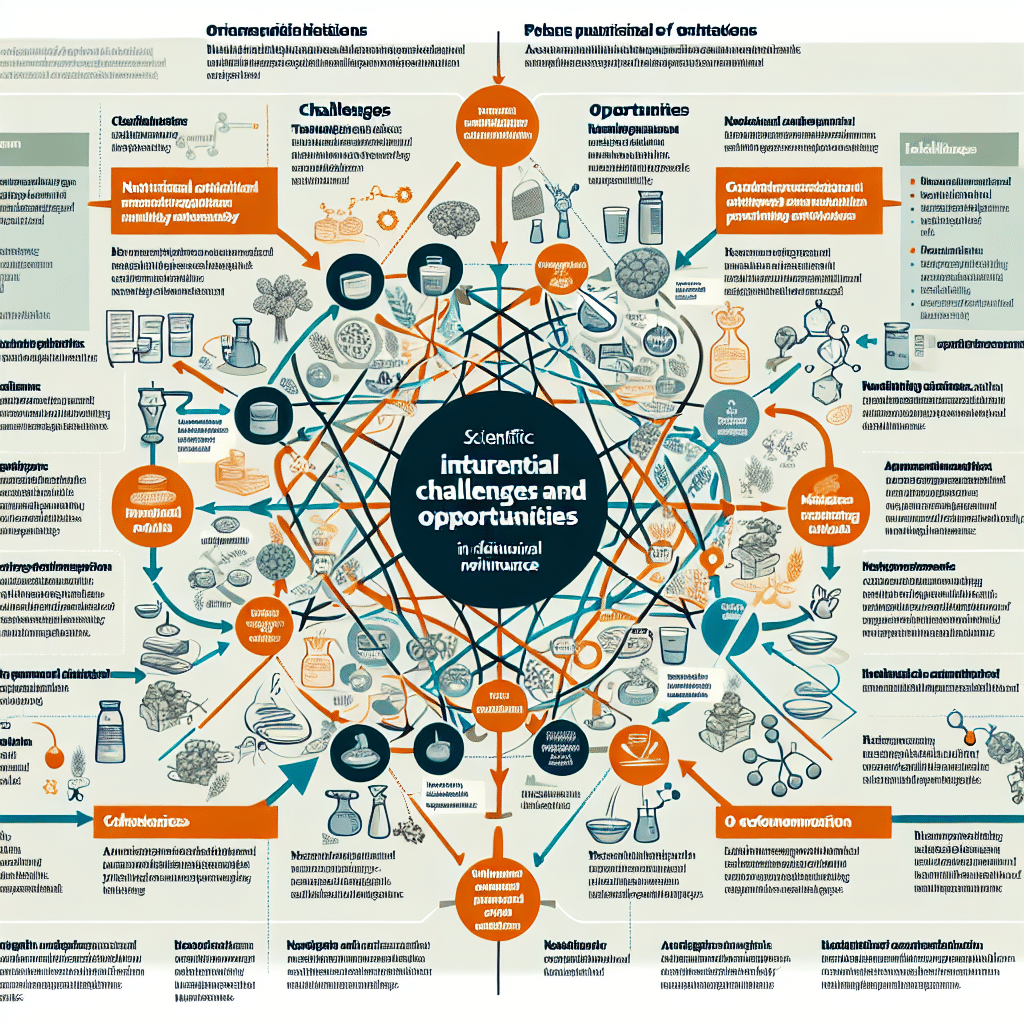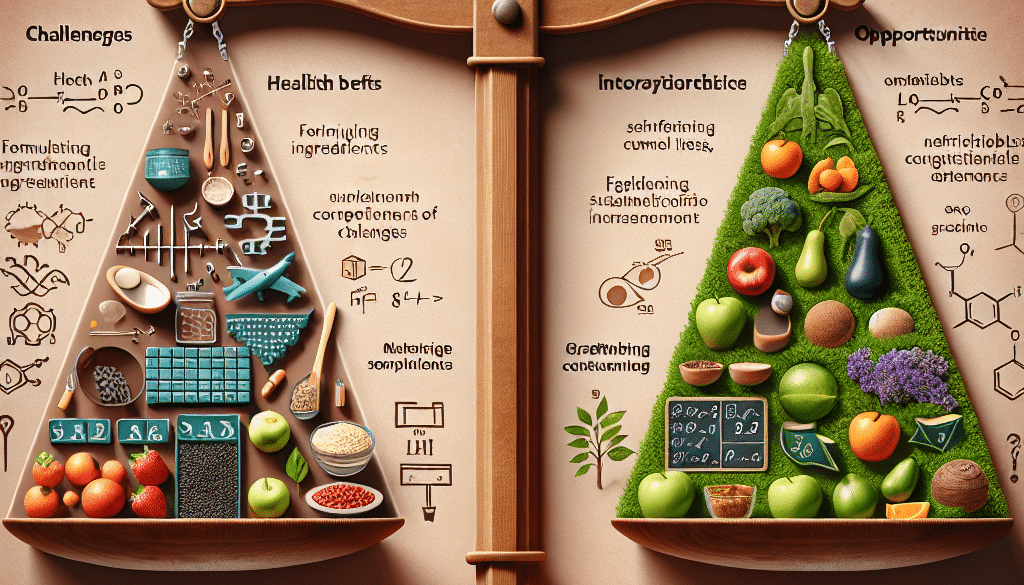Formulating Plant-Based Foods – Nutrition Challenges and Opportunities
-
Table of Contents
Plant-Based Foods: Navigating Nutritional Challenges and Opportunities

The rise of plant-based diets has been one of the most significant trends in the food industry over the past decade. With a growing number of consumers seeking alternatives to animal products for health, environmental, and ethical reasons, the demand for plant-based foods has surged. However, formulating these foods to meet nutritional needs and consumer expectations presents both challenges and opportunities for food scientists and manufacturers.
Understanding Plant-Based Nutrition
Plant-based diets are typically rich in certain nutrients, such as dietary fiber, vitamins C and E, folate, magnesium, and phytochemicals, while being lower in calories and saturated fats. However, they can also be deficient in essential nutrients found more abundantly in animal products, such as vitamin B12, iron, calcium, omega-3 fatty acids, and certain proteins.
Challenges in Plant-Based Food Formulation
- Nutrient Bioavailability: Plant-based sources of certain nutrients may not be as bioavailable as their animal counterparts. For example, iron from plant sources (non-heme iron) is less readily absorbed by the body than heme iron from meat.
- Protein Quality: Many plant proteins are considered incomplete, lacking one or more essential amino acids. Ensuring a complete amino acid profile is crucial for the body’s needs.
- Sensory Attributes: Replicating the taste, texture, and mouthfeel of animal-based foods can be challenging when using plant-based ingredients.
- Technical Limitations: The functionality of plant-based proteins in food processing may differ from animal proteins, affecting the final product’s quality.
Opportunities in Plant-Based Food Innovation
- Blending Proteins: Combining different plant proteins can create a complete amino acid profile. For example, rice and pea proteins together provide all essential amino acids.
- Fortification: Adding vitamins and minerals to plant-based foods can help bridge nutritional gaps. Fortified plant milks and cereals are common examples.
- Technological Advances: New processing techniques, such as fermentation and extrusion, can improve the texture and flavor of plant-based foods.
- Consumer Education: Educating consumers about how to combine plant-based foods to meet their nutritional needs can increase acceptance and consumption.
Case Studies and Examples
Several companies have successfully navigated the challenges of plant-based food formulation. Beyond Meat and Impossible Foods, for instance, have developed plant-based burgers that closely mimic the taste and texture of beef using a combination of proteins, fats, and flavorings. Nutritional yeast is another popular ingredient used to add a cheesy flavor and vitamin B12 to vegan products.
Statistics and Market Trends
The global plant-based food market size was valued at USD 29.4 billion in 2020 and is expected to grow at a compound annual growth rate (CAGR) of 11.9% from 2021 to 2028. This growth is driven by increasing health awareness, concerns about animal welfare, and the environmental impact of animal agriculture.
Conclusion
Formulating plant-based foods presents a unique set of nutritional challenges, but it also opens up a world of opportunities for innovation. By leveraging technology, fortification, and consumer education, food manufacturers can create products that not only meet dietary needs but also satisfy the growing demand for sustainable and ethical food choices. As the market for plant-based foods continues to expand, the industry must continue to evolve to provide nutritious and appealing options for consumers.
ETChem’s Protein Products
For those in the food industry looking to enhance their plant-based offerings, ETChem’s protein products present an excellent opportunity. Their range of collagen products, including marine, fish, bovine, and chicken collagen, can be integrated into various applications. While not plant-based, these collagens can cater to consumers looking for specific health benefits associated with collagen supplementation. ETChem’s commitment to quality and their extensive experience make them a valuable partner for businesses aiming to innovate within the food and nutrition space.
About ETChem:
ETChem, a reputable Chinese Collagen factory manufacturer and supplier, is renowned for producing, stocking, exporting, and delivering the highest quality collagens. They include marine collagen, fish collagen, bovine collagen, chicken collagen, type I collagen, type II collagen and type III collagen etc. Their offerings, characterized by a neutral taste, instant solubility attributes, cater to a diverse range of industries. They serve nutraceutical, pharmaceutical, cosmeceutical, veterinary, as well as food and beverage finished product distributors, traders, and manufacturers across Europe, USA, Canada, Australia, Thailand, Japan, Korea, Brazil, and Chile, among others.
ETChem specialization includes exporting and delivering tailor-made collagen powder and finished collagen nutritional supplements. Their extensive product range covers sectors like Food and Beverage, Sports Nutrition, Weight Management, Dietary Supplements, Health and Wellness Products, ensuring comprehensive solutions to meet all your protein needs.
As a trusted company by leading global food and beverage brands and Fortune 500 companies, ETChem reinforces China’s reputation in the global arena. For more information or to sample their products, please contact them and email karen(at)et-chem.com today.




